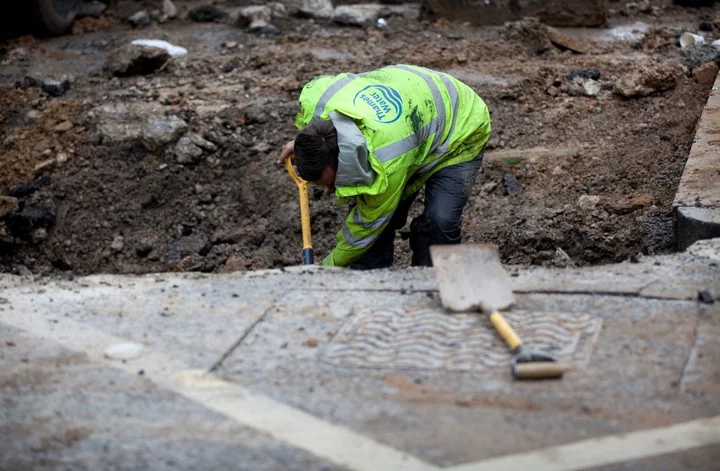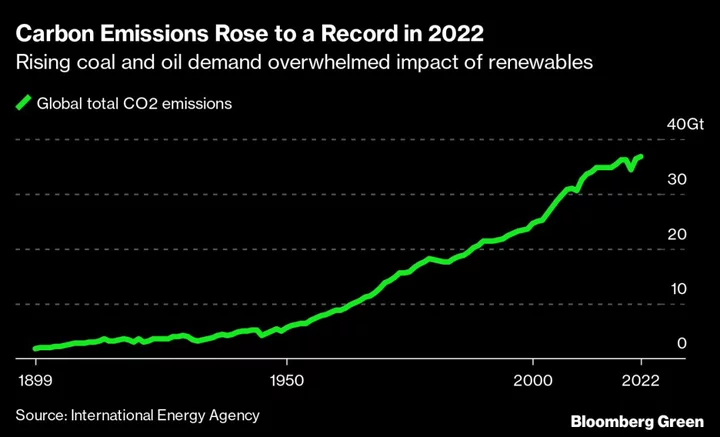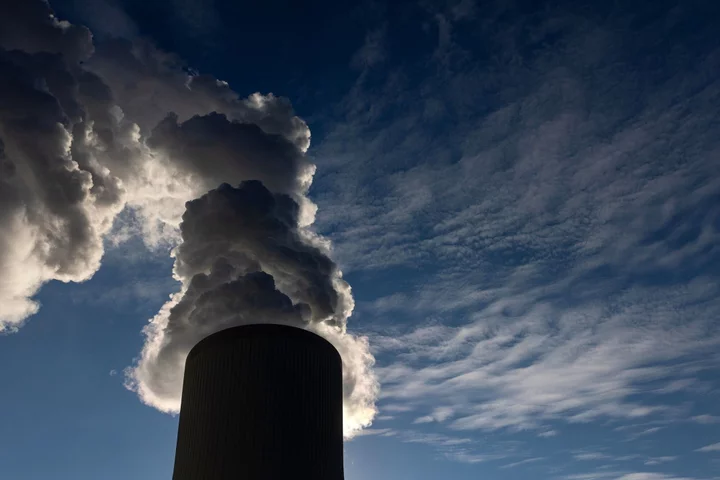It’s just a month into summer and Britain has been hit by water shortages.
Earlier-than-usual hot weather has driven demand to record levels as people fill paddling pools and irrigate lawns. One utility has banned the use of hosepipes to ensure drinking water supply, and others are feeling the pressure. It’s a stark warning of a squeeze that’s likely to occur more regularly as heat waves, changes in rainfall patterns and century-old infrastructure stress the system.
The next few months will be a test for the government and industry amid mounting public anger. The weather office sees double the usual chance of a hot summer, similar to last year when temperatures reached 40C (104F) and droughts shriveled waterways. Heat waves like the one earlier in June are likely to be repeated through the summer, the forecaster said.
To make matters worse, scarce rainfall is causing nervousness about water levels. While still comfortable nationwide, the risk for some areas is higher with a fifth of reservoirs classed as below normal or notably low at the end of May, according to the Environment Agency.
When it does rain, it’s increasingly in short intense bursts that make it less likely to seep into the ground. South West Water, which attributes the change in pattern to climate change, has said this is a reason it has banned hosepipe use in Cornwall and parts of Devon in western England for 11 months. The halt may continue until the end of this year.
“We’re still vulnerable to a massive uptick in demand if we get hot dry weather,” even though reservoirs are relatively healthy for now, said Cathryn Ross, director of strategy & regulatory affairs at Thames Water Utilities Ltd.
The company, which serves 15 million customers including in London, says that temperatures over 25C increase water use for those with private gardens by 50%. That threshold has been topped almost every day in June so far.
Leaky Pipes
Part of the problem is broken infrastructure. Most pipes haven’t been upgraded in over a century and a fifth of the water supply is lost to leaks. Companies are trying to shift some of the burden onto customers by asking them to reduce usage. But regulator Ofwat says the utilities need to raise investments to fix the spills, while critics accuse them of prioritizing dividends and high executive pay.
In a recent letter, Ofwat said the rate of renewal of water supply in pipes has dropped from 1.4% before 2008 to 0.5% in the years since. More focus is needed to ensure companies are “meeting their duty to maintain an efficient and economical system of water supply,” the regulator said.
Companies have spent just 68% of what they could have on upgrading infrastructure between 2020 and 2022, Ofwat said. Yorkshire Water, South West Water and Affinity Water’s investments have been less than half of their allowance. The utilities said they’re phasing the outlay over a five-year period.
Climate change is also putting extra urgency on fixing the creaking infrastructure. Severe temperature swings are leading to more intense wet and dry cycles for the soil, which causes pipes to move and break. At the same time, cost pressures are straining their finances.
“Extreme weather patterns have tested our operational resilience,” said Susan Jane Davy, chief executive officer at Pennon Group Plc, which owns utilities including South West Water. “At the same time, inflationary pressures have tested our financial resilience.”
Reduce Demand
Long associated with plentiful rainfall, the UK now faces a reality where people are being urged to reduce water consumption to ease the strain. Pennon is targeting a 6% cut in per capita demand by next year compared with 2019 levels for customers of South West Water.
By the middle of the century, the UK’s Environment Agency expects the gap between available water and what’s needed by homes and businesses to reach 4 billion liters per day in England as the population grows. However, reducing leaks and consumption could balance out the population increase.
Things are so dire that the UK industry is looking for inspiration from extreme cases like Cape Town in South Africa, where dramatic shortages caused by an unprecedented drought, a lack of preparedness and initially wasteful use left the city warning residents that it could have to turn off the municipal water supply. Again, companies are looking to consumers for help.
Shaunna Berendsen, chief innovation officer at Anglian Water said Cape Town managed to slash consumption over a sustained period, using public messaging, a move “we’re trying to replicate in the UK.”









